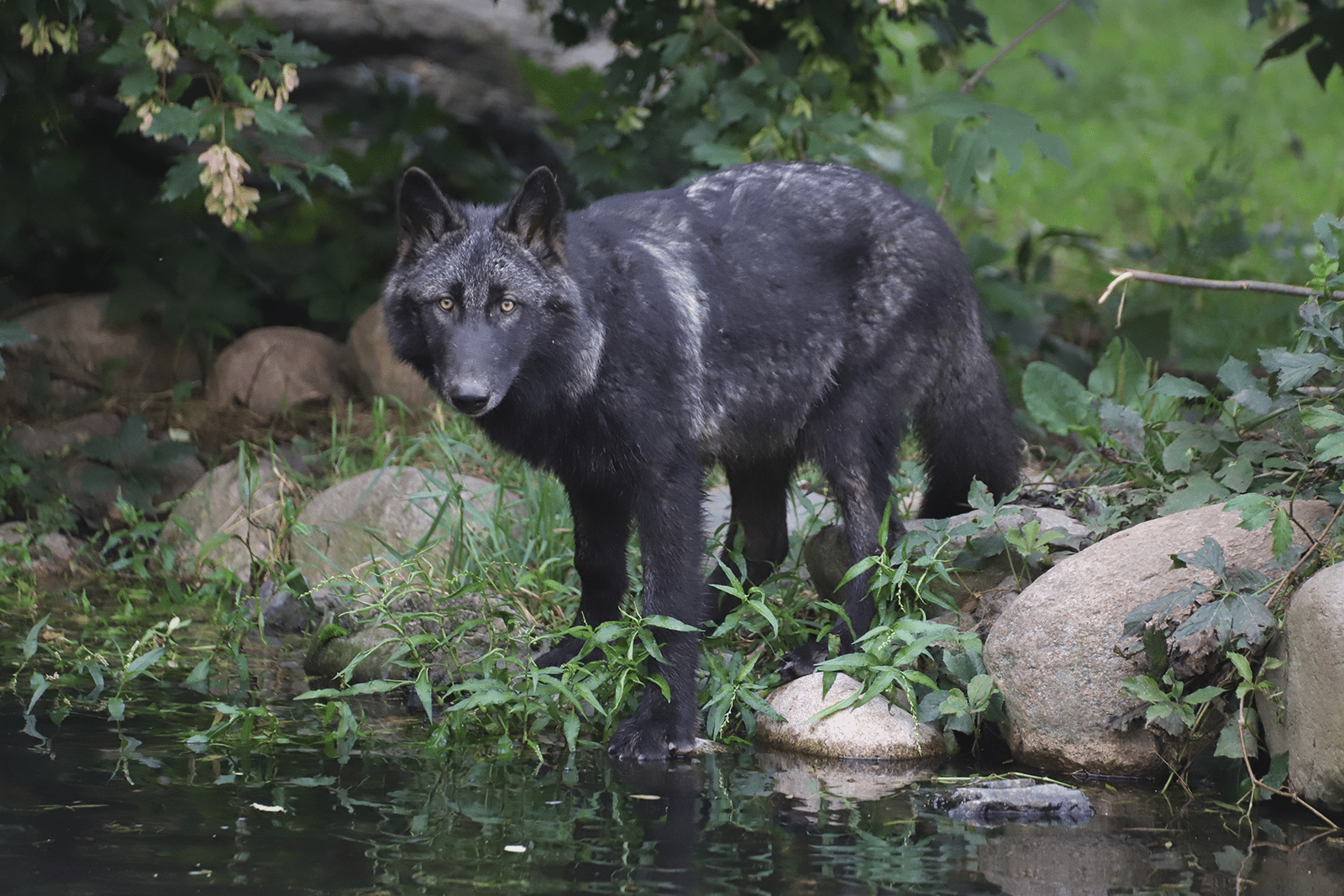“To look at what it means to share habitat with the wolf is to consider how we share it with all fellow beings, human and animal and other.” –Erica Berry, Wolfish, p. 15
Wolves undeniably spark intense emotions in people. In some cultures, wolves are seen as close spiritual kin to humankind, as powerful images of “wilderness”, or shining examples of social behavior outside of human society. For many, having wolves on the landscape is critical not only for sustainable ecosystems, but for their relationship with the land and nature. For others, fear and dislike of wolves run deep. A combination of longstanding myths and folklore that portray wolves as villains, combined with present-day concerns over livestock depredation, competition for game species, and human safety, keeps some people wary of wolves today. Our goal is to objectively present the realities of wolves as a species, along with the complexities of the wolf-human relationship. We hope that sharing this information helps foster respectful and open dialogue about wolves and how we coexist with them today.

Each person holds a unique set of values towards wolves. Our value systems are often influenced by our cultural and personal experiences, perceptions, and knowledge.
Save
Human Perspectives
Sustainable coexistence with wolves depends on understanding them as a species, examining our own values and how they influence our decisions, and searching for practicable solutions to conflicts. We encourage everyone to learn about others’ experiences with and perceptions of wolves. Below are a few accounts of different relationships and experiences with wolves:
A Personal Account of a Dog Killed by Wolves, by an anonymous resident of Ely, MN
Keeping the Wolf from the Door, by John Hart, wildlife biologist with the U.S. Department of Agriculture – Wildlife Services program in Minnesota
“The Wolf Is My Brother”, by Robert Shimek, member of the Red Lake Nation and resident of White Earth Indian Reservation (Gaawaabaabiganikaag Ishkonigan)
Washington Wolves Killing Livestock, personal accounts from livestock owners, KING 5 Seattle, September 2018
Depredation
One worldwide, controversial aspect of the wolf/human relationship is the incidence and mitigation of wolf depredation, or wolves killing domestic livestock and pets.
Wolf-dog Hybrids
Additionally, the practice of wolves or wolf-dog hybrids as pets raises many questions.

The International Wolf Center uses science-based education to teach and inspire the world about wolves, their ecology, and the wolf-human relationship.
